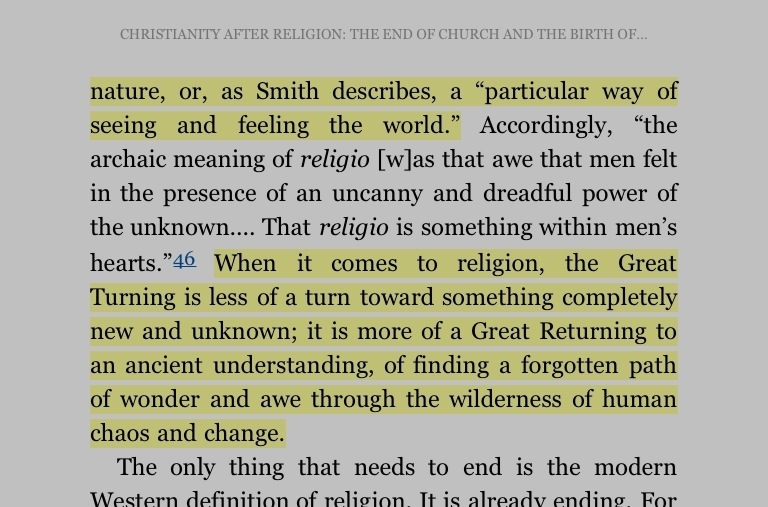Is it “through the human wilderness of chaos and change,” or is it through a socially and historically specific kind of chaos and change, whose specificity needs to inform our response? Diane Butler-Bass is correct in noting that a more archaic strata of religio may point the way through, but then our challenge is to differentiate what is emancipatory in this archaic strata from what was and remains genuinely oppressive. Religio remains emancipatory because it arose within a world in which the spirit had not yet pulled free from its bodily form of appearance and in which, therefore, the material sign was still viewed and experienced as inseparable from the divine body it revealed. Understanding why this spirit pulled free from its body (and why this body became dispirited) might therefore prove indispensable in our attempt to differentiate emancipatory from oppressive religion. Here is where Diane Butler-Bass would benefit from a more rigorous critique of the capitalist social formation, whose principle social form, the commodity, is notable precisely in that it drives a wall between the wholly abstract value form and it’s material form of appearance. The Great Transformation will not take place unless and until we cultivate a form of social relations and mediations that restore the body of religion.

